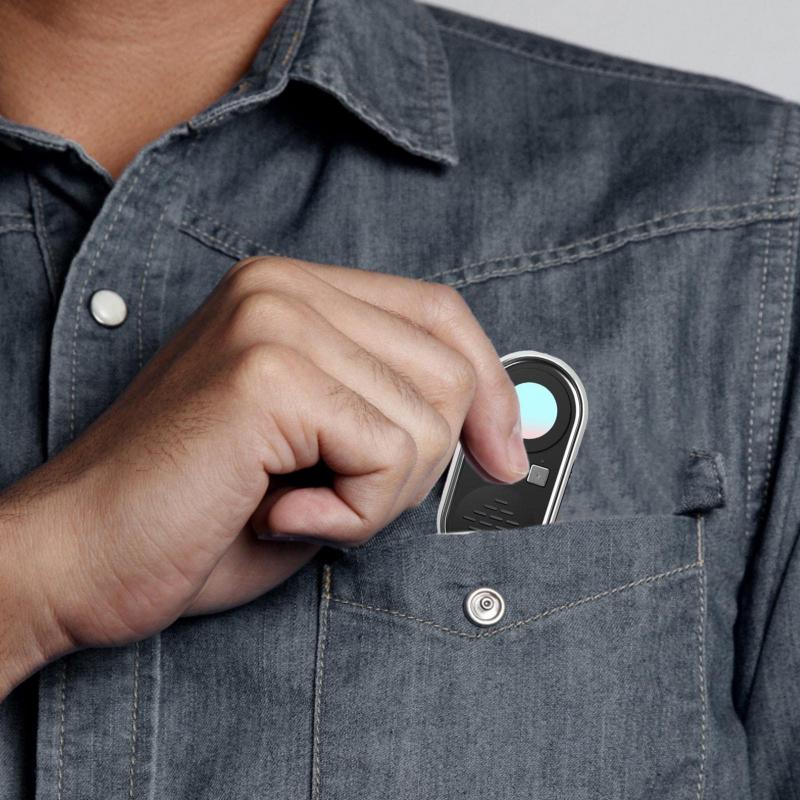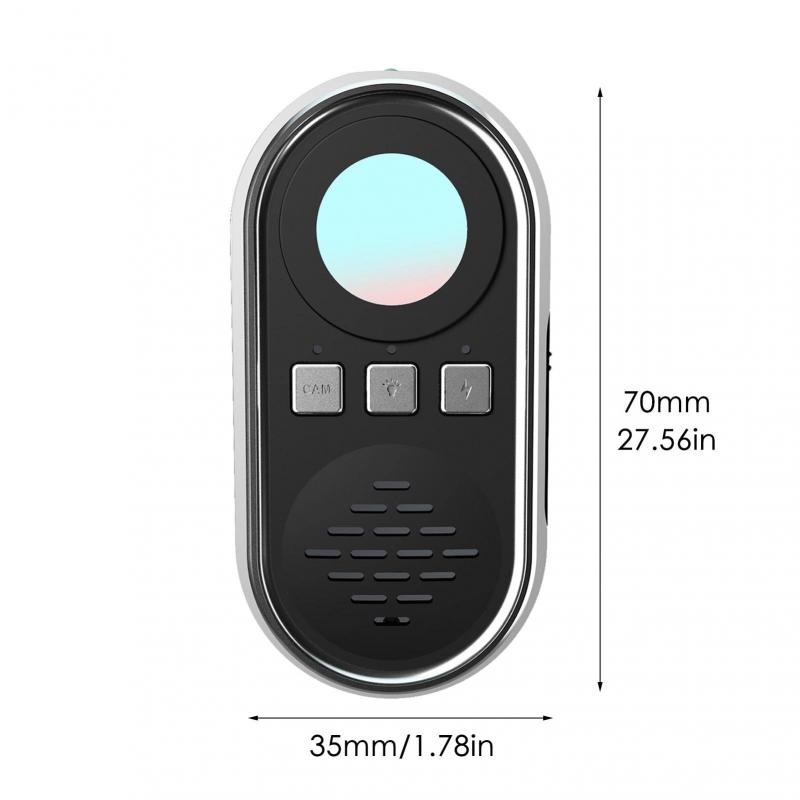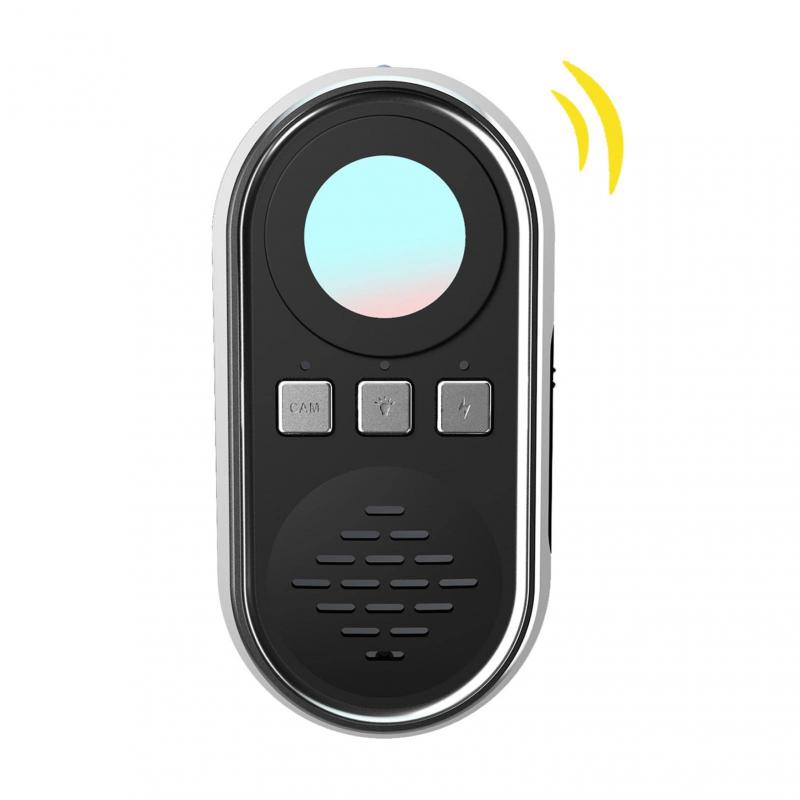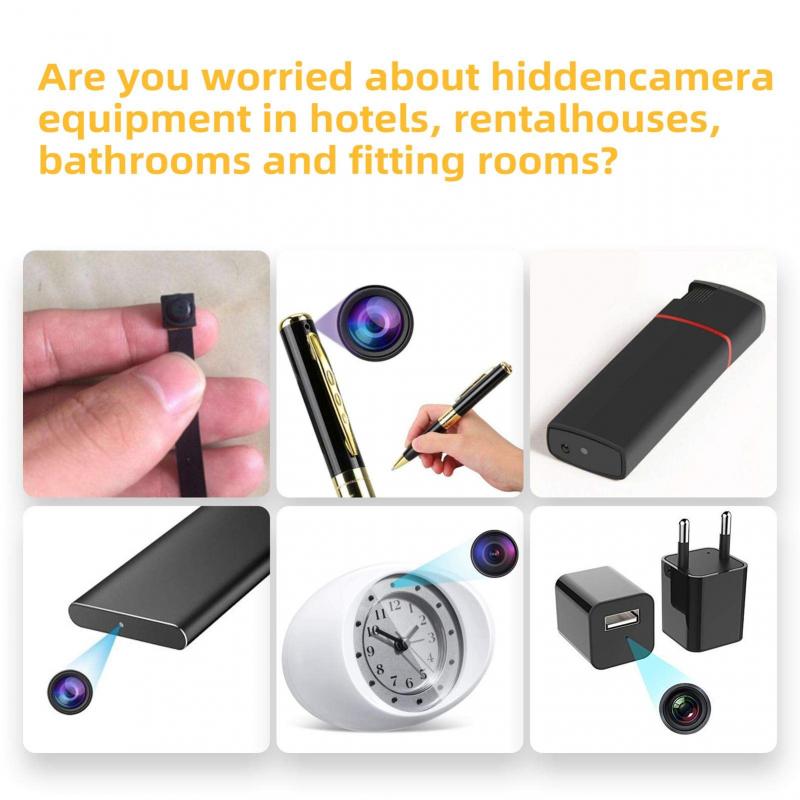How To Find Hidden Camera In Home?
In today's world, privacy is a growing concern, and the thought of hidden cameras in your home can be unsettling. Whether you're renting a new place, staying in a hotel, or just want to ensure your personal space is secure, knowing how to find hidden cameras is crucial. This article will guide you through practical steps to detect hidden cameras in your home, ensuring your privacy and peace of mind.
Understanding Hidden Cameras

Hidden cameras come in various shapes and sizes, often disguised as everyday objects like smoke detectors, clocks, or even USB chargers. They can be wired or wireless, and some are equipped with night vision capabilities. The first step in finding hidden cameras is understanding where they might be placed and what they might look like.
Common Places to Check

1. Smoke Detectors and Fire Alarms: These are common places for hidden cameras because they are usually mounted on the ceiling, providing a wide field of view.
2. Clocks and Alarm Clocks: These devices are often placed in bedrooms and living rooms, making them ideal for surveillance.
3. Mirrors: Two-way mirrors can hide cameras. A simple test is to place your fingernail against the mirror. If there's a gap between your nail and its reflection, it's a regular mirror. If there's no gap, it could be a two-way mirror.
4. Electrical Outlets and Power Strips: These can house small cameras and are often overlooked.
5. Household Items: Cameras can be hidden in everyday items like picture frames, air purifiers, and even stuffed animals.
Tools and Techniques for Detection

1. Physical Inspection: Start with a thorough physical inspection of your home. Look for unusual objects or items that seem out of place. Pay attention to small holes or unusual wires.
2. Use a Flashlight: Turn off the lights and use a flashlight to scan the room. Hidden cameras often have a lens that will reflect light, making them easier to spot.
3. Check for Unusual Wi-Fi Signals: Many hidden cameras are wireless and will connect to a local Wi-Fi network. Use a Wi-Fi scanner app to detect any unusual devices connected to your network.
4. RF Detectors: Radio Frequency (RF) detectors can help locate wireless cameras by detecting the signals they emit. These devices are relatively affordable and easy to use.
5. Lens Detection Apps: There are smartphone apps available that can help detect camera lenses. These apps use your phone's flashlight and camera to identify reflections from hidden lenses.
6. Professional Sweep: If you're still concerned, consider hiring a professional to conduct a thorough sweep of your home. Professionals have advanced tools and expertise to detect even the most well-hidden cameras.
Steps to Take if You Find a Hidden Camera

1. Document the Evidence: Take photos and videos of the hidden camera and its location. This documentation can be useful if you decide to take legal action.
2. Do Not Touch the Camera: Avoid tampering with the camera, as this could destroy potential evidence.
3. Contact Authorities: Report the discovery to local law enforcement. They can guide you on the next steps and investigate the matter further.
4. Inform Your Landlord or Property Manager: If you're renting, inform your landlord or property manager about the hidden camera. They may be able to provide additional support and take necessary actions.
Preventive Measures
1. Regular Inspections: Make it a habit to regularly inspect your home for hidden cameras, especially after having guests or service personnel over.
2. Secure Your Wi-Fi Network: Ensure your Wi-Fi network is secure with a strong password to prevent unauthorized access to any connected devices.
3. Use Privacy Covers: Consider using privacy covers for devices like laptops and smart TVs that have built-in cameras.
4. Invest in a Security System: A comprehensive security system with professional monitoring can help detect and deter unauthorized surveillance.
Legal Considerations
It's important to understand the legal implications of hidden cameras. In many jurisdictions, it's illegal to install hidden cameras in private areas without consent. However, laws vary, so it's essential to familiarize yourself with local regulations. If you find a hidden camera, consulting with a legal professional can provide guidance on your rights and options.
Finding hidden cameras in your home can be a daunting task, but with the right knowledge and tools, you can protect your privacy. Start with a thorough physical inspection, use technology to aid your search, and take appropriate actions if you discover a hidden camera. Regular inspections and preventive measures can help ensure your home remains a private and secure space. Remember, your privacy is paramount, and taking these steps can provide peace of mind in an increasingly connected world.
